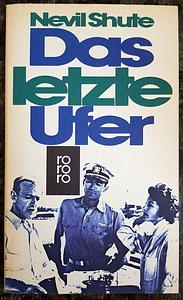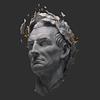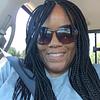Take a photo of a barcode or cover
challenging
dark
emotional
reflective
sad
medium-paced
Plot or Character Driven:
Plot
Strong character development:
Yes
Loveable characters:
Complicated
Diverse cast of characters:
No
Flaws of characters a main focus:
No
challenging
dark
emotional
medium-paced
Plot or Character Driven:
A mix
Strong character development:
No
Loveable characters:
Yes
Diverse cast of characters:
No
Flaws of characters a main focus:
No
adventurous
dark
mysterious
medium-paced
Plot or Character Driven:
A mix
Diverse cast of characters:
No
An immense book. From the gentle opening passages, in which the outlines of the world gradually unfold - how life continues even as the world is over - to the exploratory voyages of the submarine from which the only views of the irradiated world are possible, the alien beauty and horror of the world after the atomic bomb comes into view. Those Australians and few Americans who are left (this is a very simplified version of the post-apocalyptic world) live quietly, day after day, planning for a life that they know but do not acknowledge will never come. The history of the world previous is never totally clear: a war, then a series of nuclear assaults, and the immense radiation that destroys and transforms life - starting with the Northern continents of the world and then moving on south to cover the world from pole to pole.
In the midst of all of this, there are the usual stories of domesticity and work on Australia that gain the majestic power of hoping against the knowledge of what is to come: building a loveseat for a garden, finding joy in others, maintaining a farm and planning for the future of the animals who depend on others for sustenance. In this, far from a spectacular vision of the end of the world, Shute's narrowly technical eyes are trained instead on the vestiges of humanity as they flicker and fade away. A saddening book, but a powerful one.
In the midst of all of this, there are the usual stories of domesticity and work on Australia that gain the majestic power of hoping against the knowledge of what is to come: building a loveseat for a garden, finding joy in others, maintaining a farm and planning for the future of the animals who depend on others for sustenance. In this, far from a spectacular vision of the end of the world, Shute's narrowly technical eyes are trained instead on the vestiges of humanity as they flicker and fade away. A saddening book, but a powerful one.
I found this to be well thought out and deliberate. Every moment where I wished for more felt intentional and evoked emotion.
I think it's short-sighted to criticize the premise, that humans facing certain extinction would go about their routines, as unbelievable or naive. Ursula K LeGuin, my favorite author, was praised in Left Hand of Darkness as "A planter of signposts to Utopia" - not ignoring the evil in the world (it is as present and relatable in her works as the radioactive cloud here), but "daring to posit how society could be better and fairer and wiser than the one we have" in spite of it. I felt that same effort here.
It's cruelly ironic that our society feels less likely to collapse abruptly from nuclear war than steadily and agonizingly to wildfires and hurricanes and droughts, to medical bankruptcy and mass shootings and evil dictators democratically elected by the willfully ignorant. Maybe the suddenness and the certainty and innocence of their destruction provided a necessary mental clarity for their "utopia". But we have something they didn't - a chance to correct course, maybe not to rid the world of evil people but at least to build community for those kind enough and brave enough to oppose them. The eventual outcome may be the same, but we can be inspired to do more than our daily routines, because tyranny can be resisted where radioactivity cannot. I put this book down both sad and inspired, which is an impressive balance to strike.
"Some games are fun even when you lose. Even when you know you're going to lose before you start. It's just fun playing them."
"Some kinds of silliness you just can't stop. If a couple of hundred million people all decide that their national honor requires them to drop bombs upon their neighbor, well there's not much that you or I can do about it. The only possible hope would have been to educate them out of their silliness."
A good friend listed this book as one that changed the way he sees the world; that's the only reason I learned it exists or picked it up. I have no idea how he came upon it, because he isn't 60 years old and the book doesn't seem famous. But I'm really glad I read it. I hope everyone has at least one friend they discuss books with enough to appreciate their opinion enough to pick up a book because it changed them.
I think it's short-sighted to criticize the premise, that humans facing certain extinction would go about their routines, as unbelievable or naive. Ursula K LeGuin, my favorite author, was praised in Left Hand of Darkness as "A planter of signposts to Utopia" - not ignoring the evil in the world (it is as present and relatable in her works as the radioactive cloud here), but "daring to posit how society could be better and fairer and wiser than the one we have" in spite of it. I felt that same effort here.
It's cruelly ironic that our society feels less likely to collapse abruptly from nuclear war than steadily and agonizingly to wildfires and hurricanes and droughts, to medical bankruptcy and mass shootings and evil dictators democratically elected by the willfully ignorant. Maybe the suddenness and the certainty and innocence of their destruction provided a necessary mental clarity for their "utopia". But we have something they didn't - a chance to correct course, maybe not to rid the world of evil people but at least to build community for those kind enough and brave enough to oppose them. The eventual outcome may be the same, but we can be inspired to do more than our daily routines, because tyranny can be resisted where radioactivity cannot. I put this book down both sad and inspired, which is an impressive balance to strike.
"Some games are fun even when you lose. Even when you know you're going to lose before you start. It's just fun playing them."
"Some kinds of silliness you just can't stop. If a couple of hundred million people all decide that their national honor requires them to drop bombs upon their neighbor, well there's not much that you or I can do about it. The only possible hope would have been to educate them out of their silliness."
A good friend listed this book as one that changed the way he sees the world; that's the only reason I learned it exists or picked it up. I have no idea how he came upon it, because he isn't 60 years old and the book doesn't seem famous. But I'm really glad I read it. I hope everyone has at least one friend they discuss books with enough to appreciate their opinion enough to pick up a book because it changed them.
Not bad, but man, it could have been about 1/4 shorter by taking out some of the annoying descriptions. Some things aren't necessary to describe in pages and pages of detail (I'm looking at YOU, Grand Prix racing scenes). But I can see how this book would resonate very strongly in the Cold War.
Felt like the book dragged on a lil too long but I guess that’s how they felt about the end of the world too
emotional
sad
medium-paced
4 Stars
As frustrating as the beginning of this book was, I can now see the beauty of it. I see why this is a love it or hate book. We can't get past the decency and complacency of people who know the time of their deaths. We don't understand why no one is angry, violent, or thoughtless. We believe that acting inhuman a la Walking Dead is the way to go out. It is not.
This is a simple story of life at it's end. When humans have dealt out all the aforementioned violence it could muster, and we are left with rot and ruin. The only thing you have left is your humanity. Love, and love hard. Be normal; til it hurts. Drink wine on the porch and play with the baby.
This was expertly written, and the story from beginning to end is tender, thoughtful and sweet.
Highly recommended. Do not read if you want action, violence and brutality.
As frustrating as the beginning of this book was, I can now see the beauty of it. I see why this is a love it or hate book. We can't get past the decency and complacency of people who know the time of their deaths. We don't understand why no one is angry, violent, or thoughtless. We believe that acting inhuman a la Walking Dead is the way to go out. It is not.
This is a simple story of life at it's end. When humans have dealt out all the aforementioned violence it could muster, and we are left with rot and ruin. The only thing you have left is your humanity. Love, and love hard. Be normal; til it hurts. Drink wine on the porch and play with the baby.
This was expertly written, and the story from beginning to end is tender, thoughtful and sweet.
Highly recommended. Do not read if you want action, violence and brutality.




